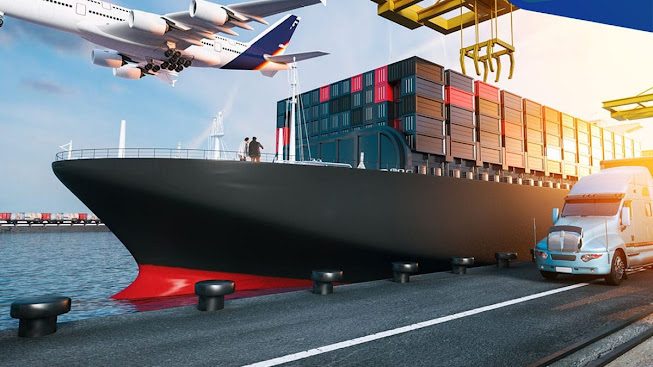The Lifeline of Global Commerce: Why Air Cargo Is Vital to the Global Economy
Air cargo is not just a mode of transportation; it's the beating heart of the global economy. This blog post explores why air cargo plays such a crucial role in international trade and highlights three to four examples that demonstrate its indispensable value.
 |
| The Lifeline of Global Commerce: Why Air Cargo Is Vital to the Global Economy |
In the fast-paced world of global commerce, time is money. Air cargo is unrivaled when it comes to speed. Unlike ocean freight or land transport, which can take weeks, air cargo can move goods across continents in a matter of hours.
Perishable goods, such as fruits, vegetables, and seafood, rely heavily on air cargo to maintain freshness during transport. For instance, Kenyan farmers can export fresh flowers to Europe, and Chilean exporters can send fresh salmon to Asia, all within 24 hours, thanks to air cargo. Without this rapid transport, these industries would suffer significant losses.
Airports are the world's gateways, and air cargo connects even the most remote regions to global markets. This accessibility opens up opportunities for businesses to reach customers worldwide.
The rise of e-commerce giants like Amazon and Alibaba is fueled, in part, by air cargo. Express delivery services rely on airfreight to meet the demands of customers who expect quick deliveries. Without air cargo, the e-commerce landscape would look vastly different.
3. Just-in-Time Manufacturing
In today's manufacturing landscape, the just-in-time (JIT) production model is the norm. This means that manufacturers receive raw materials and components precisely when they're needed, minimizing inventory costs.
Example 3: Automotive Industry
The automotive industry relies on air cargo to transport critical components, such as engine parts, electronics, and even entire engines. These components are flown to assembly plants around the world, ensuring that production lines never halt due to supply shortages.
4. Humanitarian Aid and Disaster Relief
Air cargo plays a lifesaving role in humanitarian efforts. When natural disasters strike or crises unfold, air cargo delivers vital supplies like food, clean water, medical equipment, and shelter to affected regions swiftly.
Example 4: Humanitarian Response
In the aftermath of disasters like earthquakes, tsunamis, or pandemics, organizations like the United Nations World Food Programme depend on air cargo to rapidly distribute aid to those in need. Air transport ensures that relief supplies reach disaster-stricken areas within the critical first 72 hours, when lives are most at risk.
Conclusion: A Global Engine of Prosperity
Air cargo is not just about moving goods; it's about fueling economic growth, connecting people, and saving lives. Its speed, accessibility, and ability to support critical industries make it an indispensable driver of the global economy. Whether it's delivering fresh produce to far-flung markets, enabling the growth of e-commerce, supporting JIT manufacturing, or aiding in humanitarian crises, air cargo remains the engine that propels global prosperity and resilience.



Comments
Post a Comment